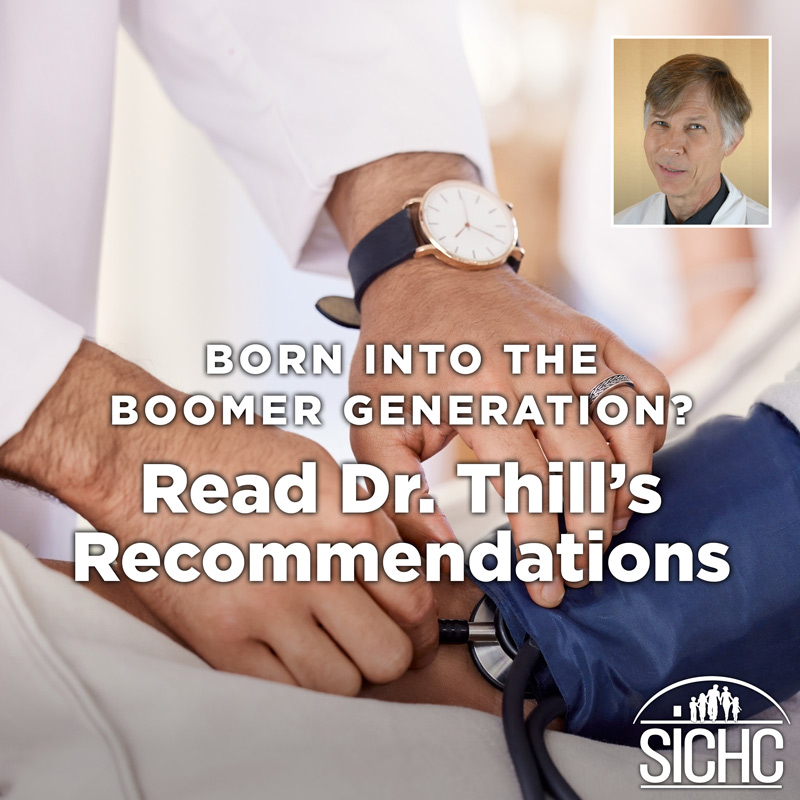Important Health Care Issues for the “Woodstock Generation”

By Curtis Thill, M.D.
Four decades ago, today’s Boomer generation in their 60s and 70s once thought they would never age. The biggest and most influential generation in American history, the once-known Woodstock generation now represents a “gray tsunami.”
With the oldest a mere 23 years old when the infamous Woodstock “Three Days of Peace and Music” festival took place, all Boomers – more than 50 million people – will reach age 65 before 2030, bringing with them a whole new set of senior healthcare issues.
Healthcare coverage for boomers
The vast majority of these aging Boomers will be served through Medicare and Medicaid insurance. Because of advances in healthcare and nutrition, Boomers can generally expect to live longer, generally up to age 74 and beyond (up eight years from data in the 2010 census).
Many aging Boomers prefer to live independently, which means they need to take care of themselves. Medicare itself has undergone notable change, with low-cost Medicare Advantage plans currently a popular option. Before you turn age 65, it is important that you gather information about the various Medicare plans so you can make an informed decision. The website at https://www.medicare.gov is a good place to start. Many hospitals and providers, like ourselves have free insurance navigation professionals to help.
Taking responsibility for your health
Here’s a key point: taking responsibility for maintaining your good health is essential at any age, but it is vital in your 60s and beyond. And let’s face facts – in the Crawford County region, maintaining good health is not always a top priority for some. I see many patients who would probably enjoy a higher quality of life if they would take some simple steps.
So what can Boomers do?
First and foremost, stay physically active. As our bodies age, we will lose muscle – especially if we’re just sitting around all of the time. Energy levels can ebb prematurely.
One solution? We live in some of the most beautiful areas of Indiana, so try getting outside and taking a regular walk.
Taking regular walks of 30 minutes or more can provide a whole host of benefits like boosting your immune system, toning up muscles, improving circulation, and helping you get better sleep. If you can, swimming produces excellent benefits, as does an occasional light workout. Yoga classes are available in the region, which also help.
Keep your mind sharp and active. Instead of watching television, why not keep your mind better engaged by ramping up old hobbies or developing new ones? Perhaps taking a class about something you’re interested in – either in-person or online. Reading a delightful book can enrich your life and keep those cognitive muscles toned up. Why not consider passing on your life experiences and serving as a much-needed mentor in our communities?
Eat as healthy as you can. In our region, it’s extremely easy to rip open a bag of chips and drink a cola or a nutrition beverage and call it a meal. Over time that’s hard on your digestive system, which can lead to other healthcare issues. Learn how to eat “heart healthy,” which can be surprisingly good.
It’s important to have a good relationship with a physician or medical professional at any age, but it becomes even more critical for seniors. Find a physician or provider who can walk with you together for good health – and don’t forget that annual wellness visit. It could prolong or even save your life!
Board-qualified in family medicine, Curtis Thill, M.D. is an active member of the Woodstock generation.
